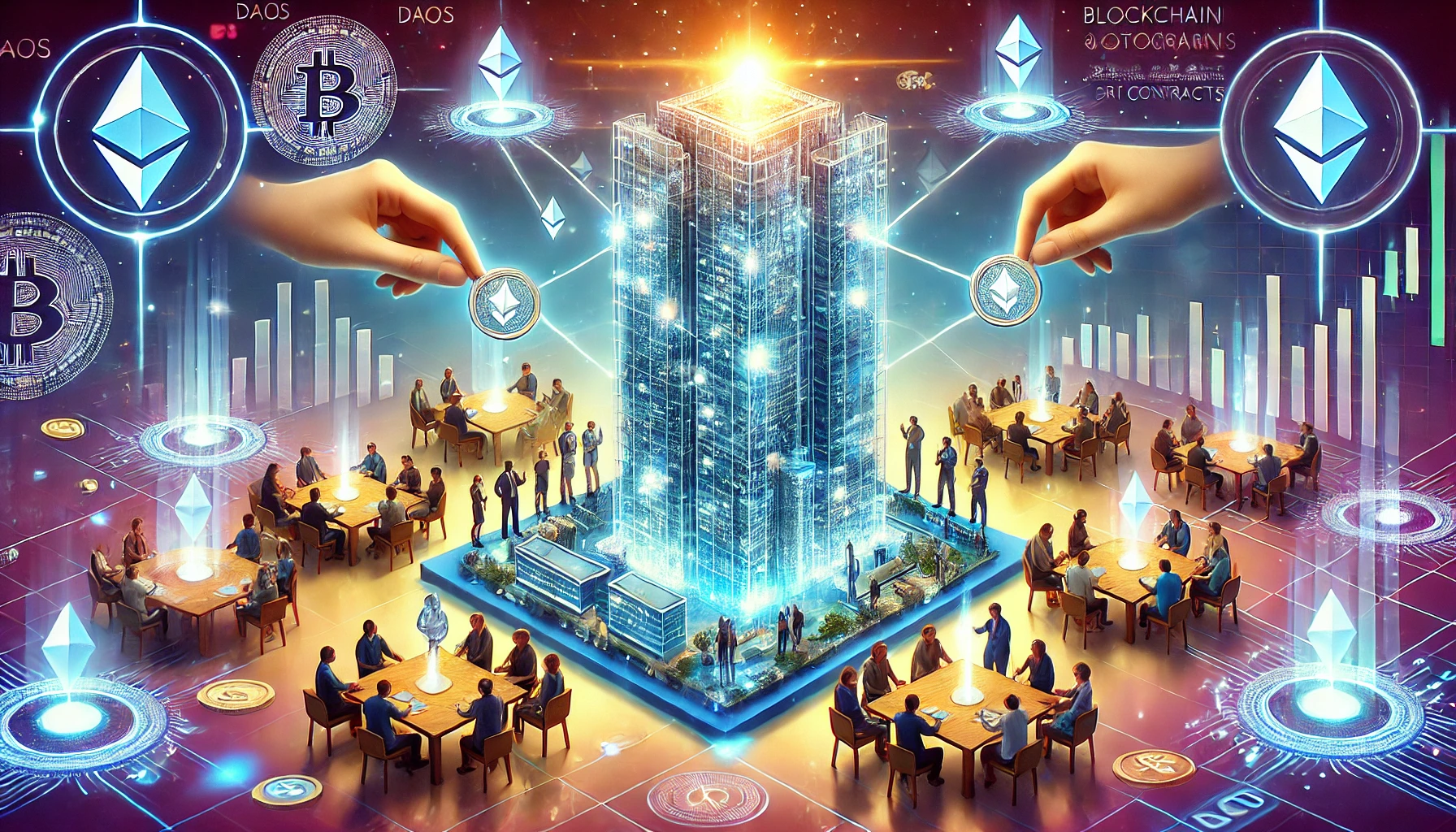Decentralized Autonomous Organizations (DAOs): The Future of Corporate Governance?

The Rise of DAOs: A New Era in Governance
In a world where traditional corporate hierarchies often feel as outdated as fax machines, Decentralized Autonomous Organizations (DAOs) are emerging as the rebellious disruptors we didn’t know we needed. DAOs flip the conventional top-down corporate structure on its head, giving us a fresh, community-driven approach to decision-making. Unlike your typical CEO calling the shots, DAOs run on smart contracts and blockchain technology. Think of them as a group chat where every message counts, and no one can be kicked out for disagreeing with the admin. But how exactly are these digital collectives changing the game of corporate governance, and why should you care? Let’s dive into the future of DAOs and see how they’re shaking things up.
How DAOs Work: Blockchain, Voting, and Beyond
At their core, DAOs are all about decentralization. There’s no board of directors sitting in a mahogany-paneled room making decisions behind closed doors. Instead, DAOs operate on blockchain technology, where every member gets a say, and every decision is transparent. Here’s how it works. When you join a DAO, you’re essentially buying into a community that operates via smart contracts—automated, self-executing agreements that exist on the blockchain. Members vote on decisions using governance tokens, which act like shares in a traditional company but with one big difference: the voting power is in the hands of the many, not the few. You won’t need to worry about your boss pulling rank to make a decision that benefits only the upper echelons. Instead, it’s more of a ‘we’re all in this together’ vibe, and that transparency can build trust—something sorely lacking in many corporate structures today.
Why DAOs Could Be Corporate Governance’s Next Big Thing
The potential of DAOs to revolutionize corporate governance is enormous. Imagine a company where employees, shareholders, and even customers have a say in how the business is run. Decisions about budget allocation, partnerships, or even the CEO’s salary are made through a collective vote, with the process laid out for everyone to see. This kind of transparency could prevent the kind of shady backroom deals and corporate scandals that have plagued companies for years. Remember Enron? Yeah, with a DAO, that kind of corporate mismanagement would have been a lot harder to pull off. Plus, DAOs offer a level playing field for all stakeholders, which could lead to fairer, more equitable outcomes. It’s like having a democracy within a business. The downside? Not everyone likes democracy, especially when they’re used to being in charge. But for those who are tired of the corporate elite making all the decisions, DAOs offer a breath of fresh air.
Real-World Examples: Successful DAOs Leading the Charge
Several DAOs have already proven that this model can work in the real world. Take MakerDAO, for example, which governs the Maker Protocol. It’s a decentralized organization where token holders make critical decisions about its stablecoin, DAI. This DAO has been highly successful, showing that a decentralized approach can thrive in the fast-paced world of DeFi (Decentralized Finance). Then there’s Aragon, a platform designed to help other organizations create their own DAOs. Aragon itself operates as a DAO, proving its use case by managing a massive treasury through a collective decision-making process. Even outside of finance, DAOs are gaining ground. PleasrDAO, for instance, is an art collective that pools resources to acquire high-value digital art, all through community-driven decisions. These examples demonstrate that DAOs can transcend industries and are not just limited to blockchain or crypto spaces.
The Roadblocks: Challenges DAOs Face in Corporate Governance
While DAOs present an exciting alternative to traditional corporate governance, they’re not without their challenges. One major hurdle is regulatory uncertainty. The law hasn’t quite caught up with this new form of organization, and there’s still a lot of grey area around how governments will treat DAOs. Are they companies? Partnerships? Something entirely different? Until these questions are answered, DAOs will remain in legal limbo in many jurisdictions. Another challenge is scalability. As DAOs grow, decision-making can become cumbersome. If every token holder has a say in every decision, things can grind to a halt, leading to what some call ‘decision fatigue.’ And let’s not forget the potential for bad actors. While DAOs aim to be more democratic, they’re not immune to takeovers by individuals or groups with enough governance tokens to sway votes in their favor. So while DAOs may promise a more equitable future, they also need to navigate some tricky terrain to get there.
The Future of DAOs in Corporate Governance: Revolutionary or Overhyped?
So, are DAOs the future of corporate governance, or are we getting ahead of ourselves? It’s clear that DAOs offer a compelling alternative to the centralized structures that dominate the corporate world today. With their focus on transparency, fairness, and collective decision-making, DAOs have the potential to create organizations that are more aligned with the needs and desires of their stakeholders. However, the road to widespread adoption is fraught with challenges, from regulatory hurdles to practical issues like scalability and governance. But if these obstacles can be overcome, DAOs could very well reshape the future of corporate governance. Whether or not they’ll completely replace traditional corporate structures remains to be seen, but one thing’s for sure: they’re already making waves.
Conclusion: Will DAOs Revolutionize Corporate Governance?
DAOs are more than just a buzzword in the crypto community; they’re a genuine force pushing for change in the way organizations are structured and governed. From their transparent decision-making processes to their potential for creating more equitable business environments, DAOs offer a tantalizing glimpse into the future of corporate governance. But like any new technology, they come with their own set of challenges. Whether or not DAOs will become the norm for corporate governance remains to be seen. What do you think—are DAOs the future of how companies will be run, or are we still a long way off from fully decentralized corporations?



